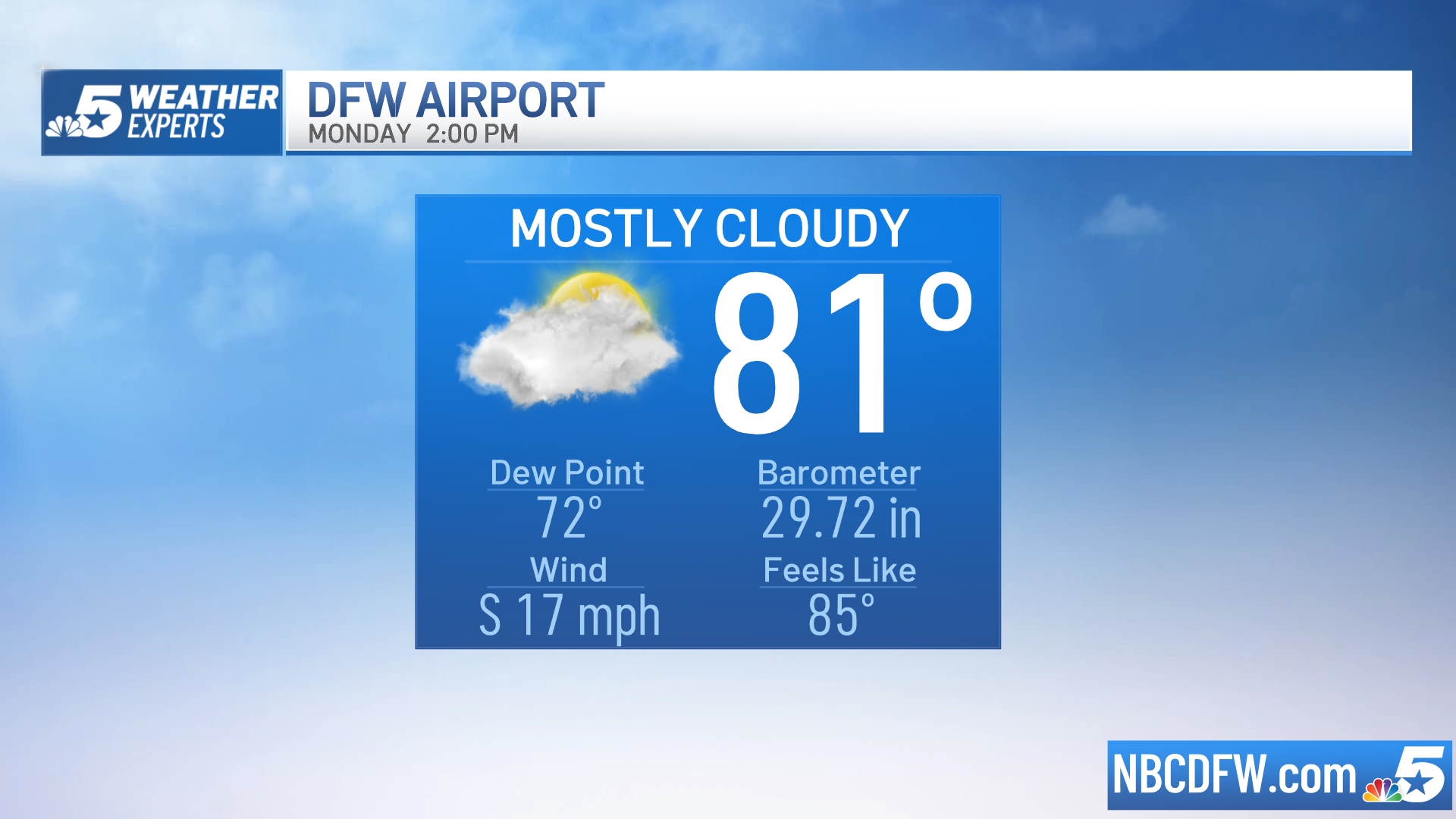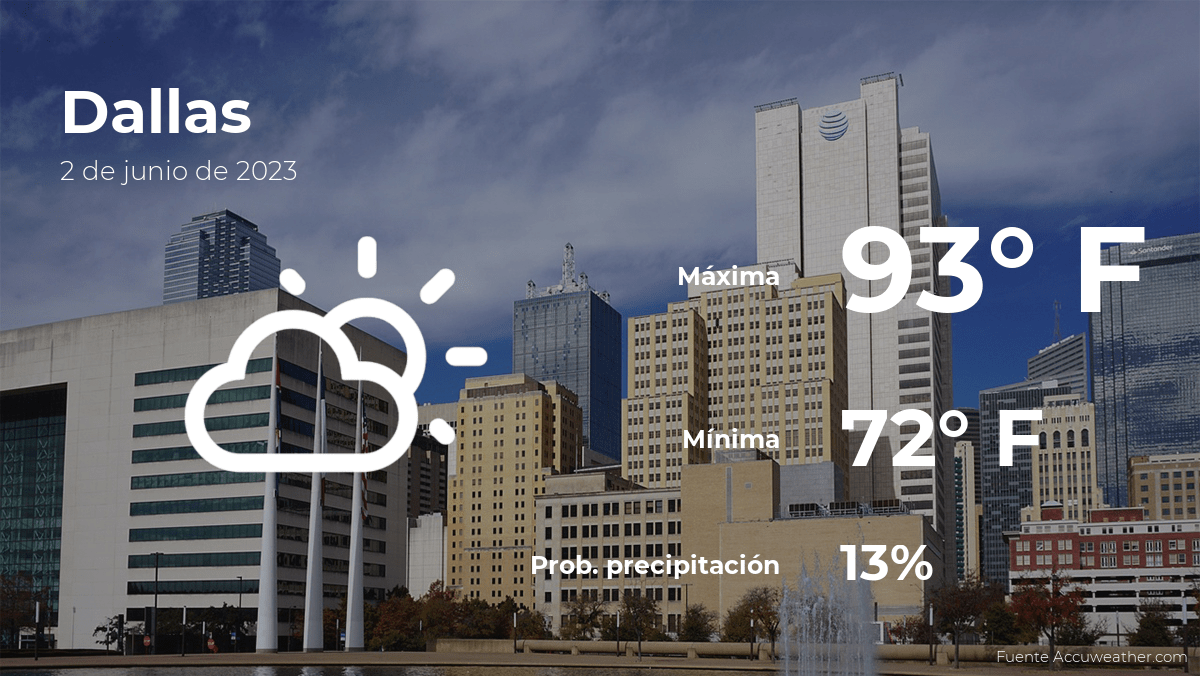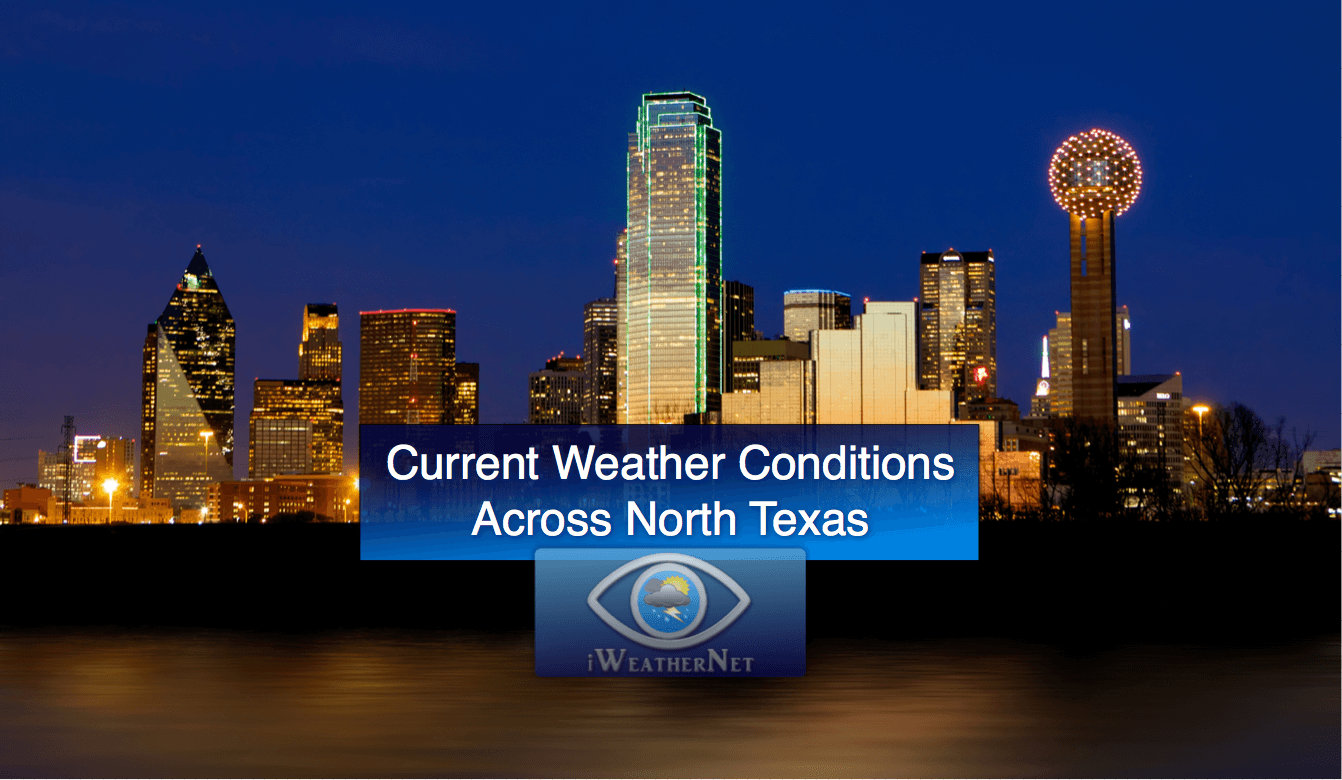Current and Historical Weather Patterns: Weather Dallas

Weather dallas – Dallas, Texas, experiences a humid subtropical climate with hot, humid summers and mild, dry winters. The city’s average annual temperature is 64.9°F (18.3°C), with an average annual precipitation of 37.7 inches (957.6 mm).
The weather in Dallas has been unseasonably warm lately, with temperatures reaching into the 80s. This is unusual for this time of year, and it has led to some speculation that the weather may be related to the recent death of British teenager Harry Dunn.
Dunn was killed in a car accident in August 2019, and his death has sparked outrage in the UK. Some people believe that the warm weather in Dallas may be a sign of divine retribution for Dunn’s death. However, there is no scientific evidence to support this claim, and it is more likely that the warm weather is simply a result of natural climate variation.
Over the past 5 years, Dallas has experienced a trend of increasing temperatures and decreasing precipitation. The average annual temperature has increased by 1.2°F (0.7°C), while the average annual precipitation has decreased by 5.3 inches (134.6 mm).
The weather in Dallas today is expected to be sunny and warm, with a high temperature in the mid-70s. This is a welcome change from the cold and rainy weather we’ve been having lately. I’m looking forward to spending some time outdoors today, maybe even catching a glimpse of Robert De Niro at his press conference.
The weather in Dallas is perfect for a day like this.
Temperature
Dallas’s average temperature varies significantly throughout the year. The warmest month is July, with an average temperature of 86.7°F (30.4°C). The coldest month is January, with an average temperature of 44.3°F (6.8°C).
The weather in Dallas has been unusually mild this winter, with temperatures hovering in the 60s and 70s. This is a welcome change from the usual cold and dreary weather that the city experiences during this time of year. The mild weather has also brought out the city’s residents, who have been enjoying the opportunity to get outside and enjoy the sunshine.
Like Robert De Niro once said, “The best way to enjoy the weather is to get outside and experience it.” The people of Dallas are certainly taking his advice to heart, and they are making the most of this beautiful weather.
Humidity
Dallas’s humidity levels are relatively high throughout the year. The average annual relative humidity is 72%. The most humid month is July, with an average relative humidity of 80%. The least humid month is December, with an average relative humidity of 65%.
The recent verdict on the trump verdict has sent shockwaves across the country, but here in Dallas, the weather has been the talk of the town. The scorching heat has been relentless, with temperatures soaring into the triple digits, making it difficult to step outside without feeling like you’re being cooked alive.
As the sun beats down, it’s hard not to think about the political turmoil that’s gripping the nation. But even in the midst of all this chaos, the weather in Dallas remains a constant reminder of the beauty and resilience of nature.
Precipitation
Dallas’s precipitation is distributed fairly evenly throughout the year. The wettest month is May, with an average precipitation of 4.6 inches (116.8 mm). The driest month is October, with an average precipitation of 2.6 inches (66 mm).
Wind Patterns
Dallas’s wind patterns are generally light and variable. The average wind speed is 9.2 mph (14.8 km/h). The most common wind direction is south-southeast.
Weather Forecasting and Predictions

Weather forecasting plays a crucial role in our daily lives, helping us plan our activities and make informed decisions. In Dallas, weather forecasting is particularly important due to the city’s susceptibility to extreme weather events such as tornadoes, hailstorms, and flash floods.
Weather forecasting involves using computer models to predict future weather conditions based on current atmospheric data. These models incorporate complex equations that simulate the behavior of the atmosphere, taking into account factors such as temperature, humidity, wind speed, and pressure. By running these models, meteorologists can generate weather forecasts for specific locations and time periods.
Accuracy and Reliability of Weather Forecasting Models
While weather forecasting models have become increasingly sophisticated over the years, they are not always perfectly accurate. The accuracy of a weather forecast depends on several factors, including the complexity of the weather system, the availability of data, and the skill of the meteorologist interpreting the model output.
Short-term forecasts (up to a few days) are generally more accurate than long-term forecasts (a week or more). This is because short-term forecasts rely on more detailed data and are less likely to be affected by changes in atmospheric conditions.
Factors Affecting Weather Predictions, Weather dallas
Several factors can affect the accuracy of weather predictions, including:
- Climate change: Climate change is altering weather patterns around the world, making it more difficult to predict future weather conditions. For example, climate change is increasing the frequency and intensity of extreme weather events, such as heat waves, droughts, and floods.
- Atmospheric conditions: The state of the atmosphere can also affect the accuracy of weather predictions. For example, the presence of a strong jet stream can make it difficult to predict the path of storms. Similarly, the presence of a large body of water can influence local weather patterns.
- Data availability: The accuracy of weather forecasts also depends on the availability of data. In areas with limited data, such as over oceans or in remote regions, weather forecasts may be less accurate.
Impact of Weather on Local Activities and Industries

Weather conditions in Dallas significantly impact outdoor activities and events. Extreme heat during summer months can lead to heat-related illnesses and cancellations or postponements of outdoor events. In contrast, heavy rainfall and flooding can disrupt transportation, close businesses, and damage property.
Outdoor Activities and Events
Dallas residents and visitors enjoy a wide range of outdoor activities throughout the year. However, extreme weather conditions can pose risks and challenges. During summer, temperatures can soar above 100 degrees Fahrenheit, making it dangerous to engage in strenuous activities outdoors. Heat-related illnesses, such as heat exhaustion and heat stroke, can occur if proper precautions are not taken.
Heavy rainfall and flooding can also disrupt outdoor activities and events. In 2015, Dallas experienced a severe flood that caused widespread damage and forced the cancellation of several major events, including the State Fair of Texas.
Local Businesses
Weather conditions can also have a significant economic impact on local businesses. The tourism industry is particularly vulnerable to extreme weather events. For example, a major snowstorm or ice storm can lead to a decline in tourism revenue as visitors cancel their travel plans. Additionally, extreme heat can deter tourists from visiting Dallas during the summer months.
Agriculture is another industry that is heavily impacted by weather conditions. Droughts can damage crops and livestock, leading to losses for farmers and ranchers. Conversely, excessive rainfall can also harm crops and cause flooding, which can damage farm equipment and infrastructure.
Extreme Weather Events
Dallas is located in a region that is prone to extreme weather events, such as tornadoes, hailstorms, and thunderstorms. These events can cause significant damage to property and infrastructure, and they can also lead to injuries and fatalities.
In 2019, a tornado outbreak in Dallas caused widespread damage, including the destruction of homes and businesses. The storms also left thousands of people without power and caused millions of dollars in damage.
The relentless heat of Dallas, Texas, has been a constant companion these past few days. Yet, even amidst this scorching summer, one cannot help but recall the icy grip of winter and the chilling portrayal of a hunter by Robert De Niro in the classic film, cazador robert de niro.
As the sun beats down mercilessly, we seek refuge in the memory of that haunting performance, a reminder that even in the most extreme of conditions, the human spirit can prevail.